30.09.2022

R-insights Research Company has implemented a public opinion survey among 3000 residents of Armenia, in April-May, 2022. The survey aimed at measuring public perceptions of the judicial system and the Prosecutor’s Office in Armenia. More specifically, the overall public perception was measured through uncovering: a) the level of awareness and knowledge of the courts, Supreme Judicial Council the Prosecutor's Office; b) experience of interaction with the mentioned institutions and c) attitudes towards these institutions, including level of trust and image perceptions.
The survey was initiated by the “Consolidation of the Justice System in Armenia” project implemented by German Foundation for International Legal Cooperation (IRZ) within an EU grant.
Data was collected through CATI method in the period of April 1st to May 7th, 2022. The respondents were selected in accordance with the Random Digit Dialing principle. The sample structure represents the proportions of population of Armenia across administrative regions. Margin of error is ±1.8%, the confidence level is 95%.
The survey has revealed that 52.1% of the respondents tend to trust the judicial system of Armenia, and 54.3% trust the Prosecutor’s Office.
The net trust score (NTS) for both of the mentioned institutions is positive: the NTS for the judicial system constitutes 12.5% while for the Prosecutor’s Office the score is 24%.
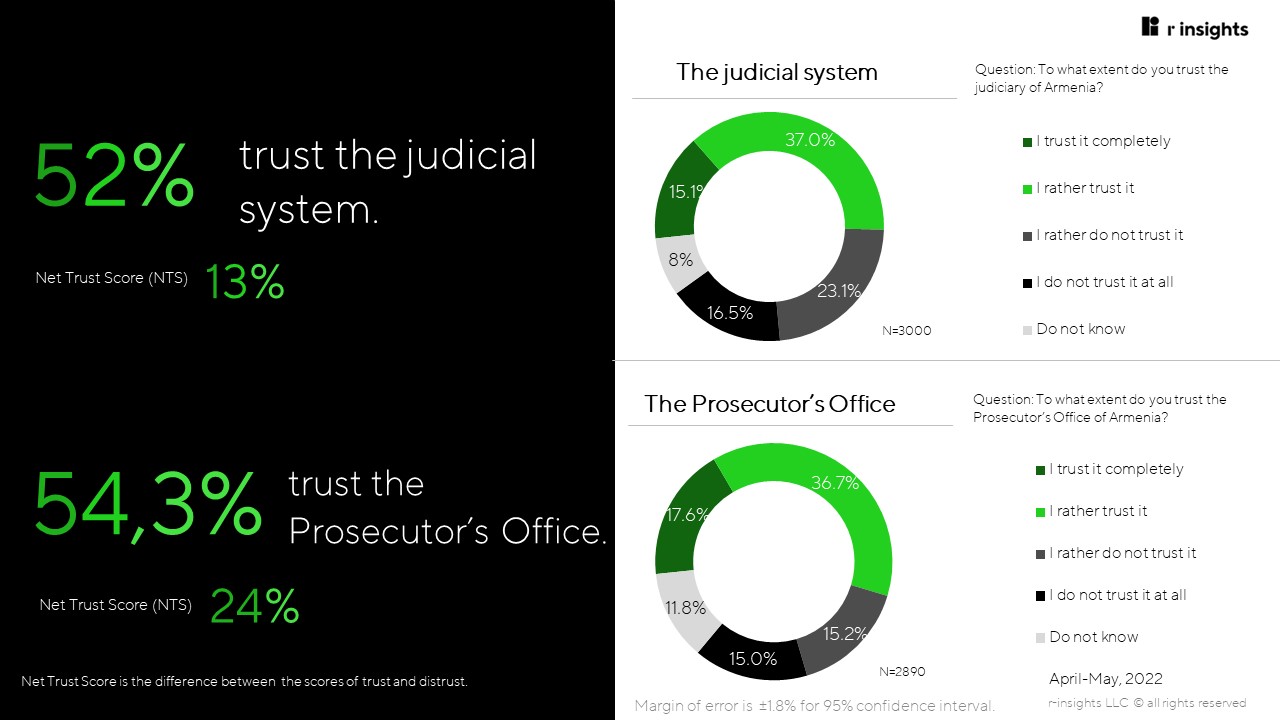
38% of the respondents feel that their current level of trust towards judiciary has not changed since 2019, equal number of respondents report improvement in the level of trust. 19% of the respondents state that their level of trust has deteriorated since 2019.
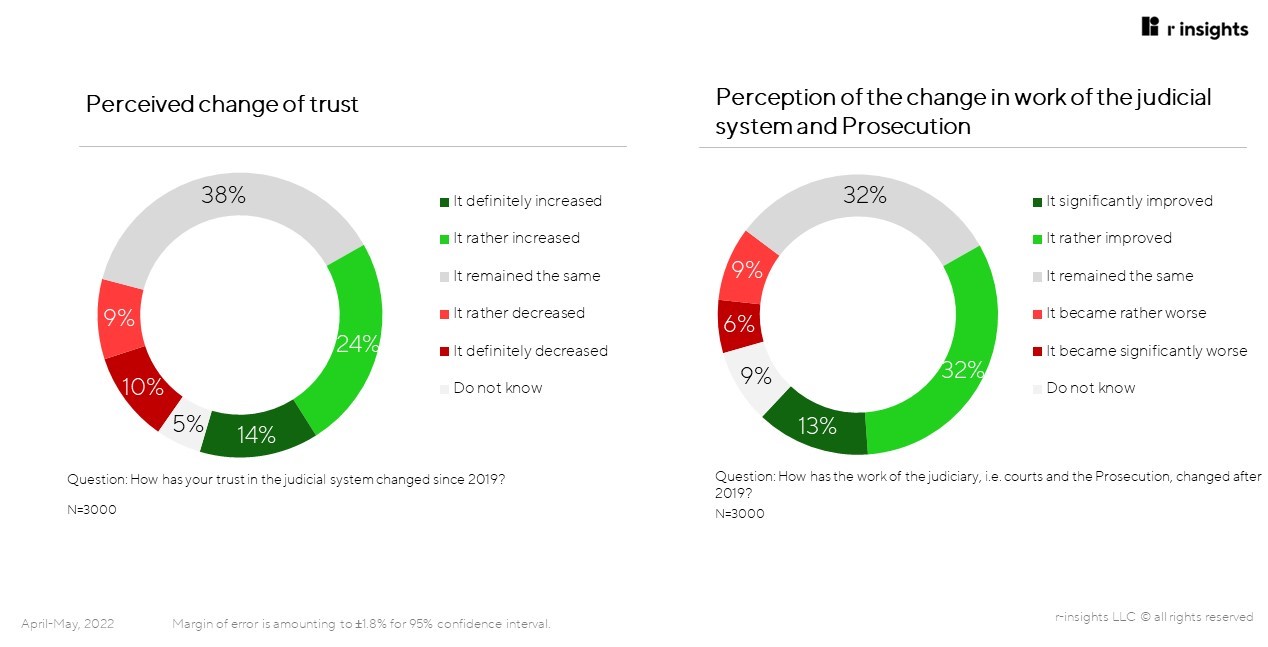
The respondents who tend to trust the judicial system, believe that the system is impartial (18%), assures the rule of law (8%), the professional qualities of the judges are high (5%) (top 3 reasons are mentioned). It is noteworthy that 8% of the respondents found it difficult to articulate the reasons behind their trust.
The respondents who expressed distrust towards the judicial system, justified the distrust by stating the system is not impartial (11%), the system is corrupt (7%) and it does not assure the role of law (7%) (top 3 reasons are mentioned).
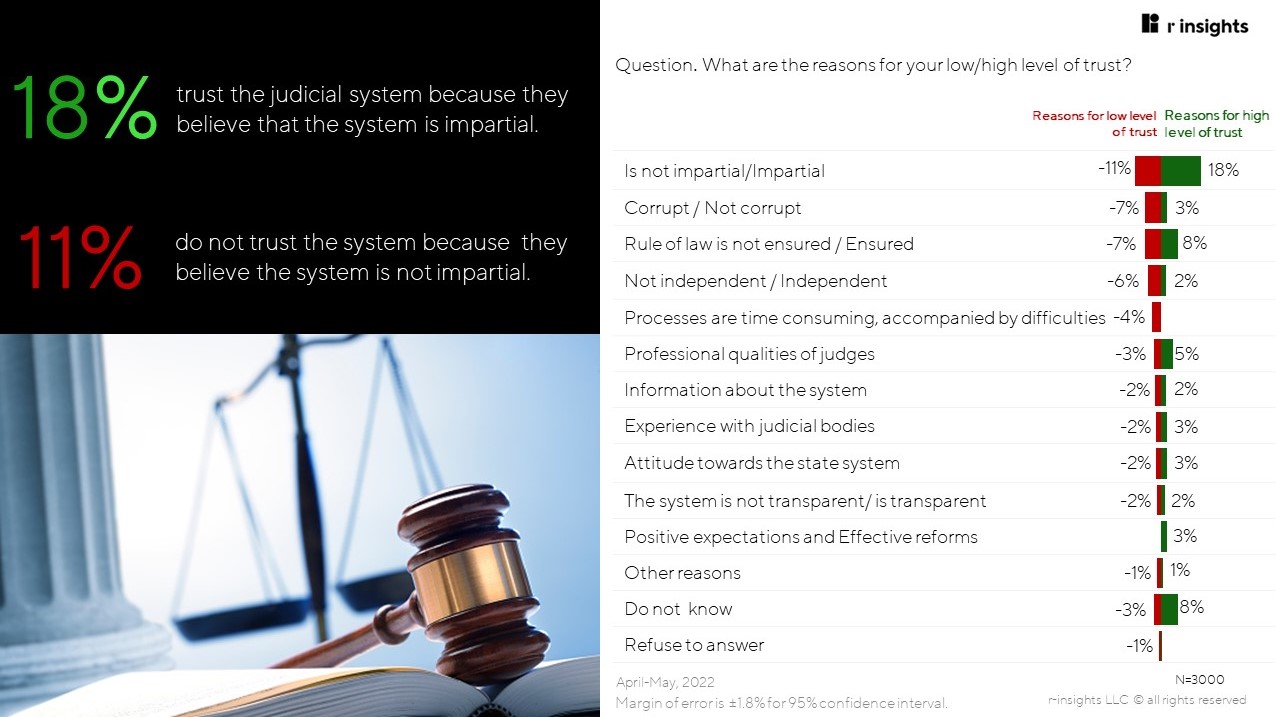
The Court of Appeal enjoys relatively higher level of trust (59%) as compared with other courts. The Court of Cassation follows with the level of trust amounting to 58%.

The highest level of trust (the sum of respondents who have mentioned "rather trust" and "fully trust") is observed among female respondents (55%), residents of regional urban (55%) and rural areas (61%), as well as among those without higher education (55%). Respondents belonging to older age groups and Yerevan residents tend to express more distrust in the judicial system than members of other groups. Groups with a higher per capita income per household are more likely not to trust the judicial system. These differences are statistically significant.
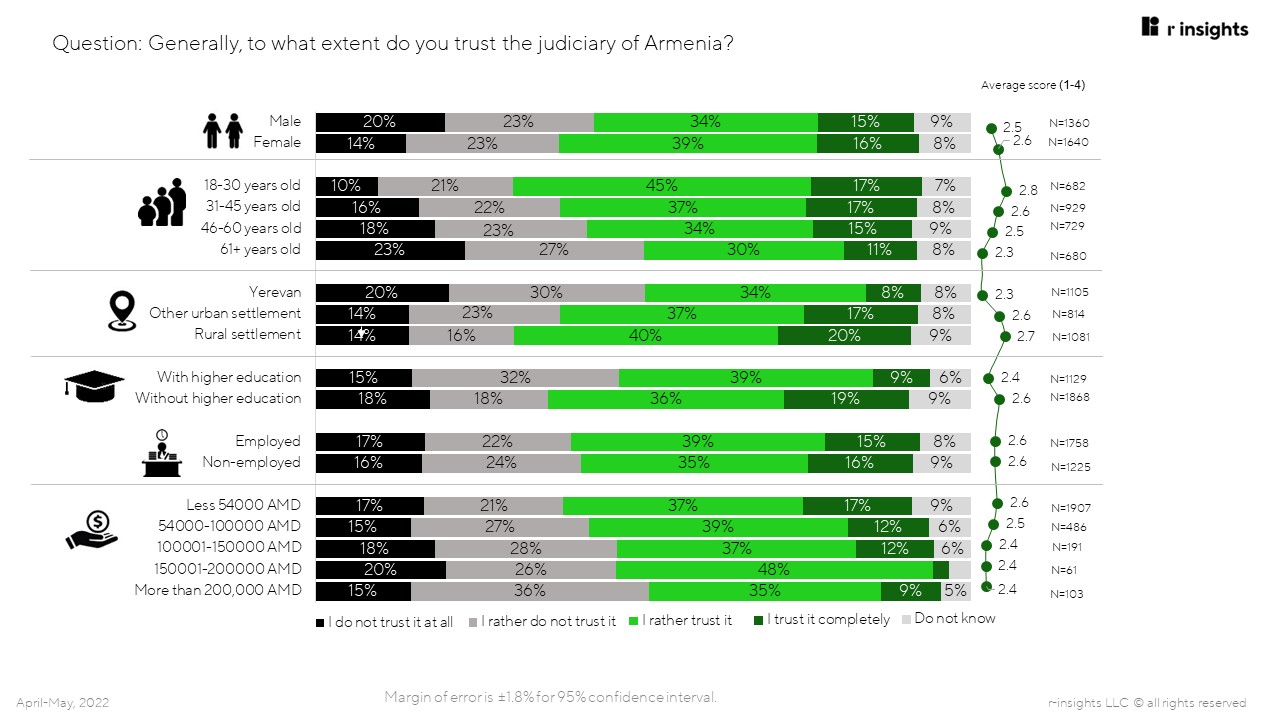
The respondents having experience with the courts, trust the system less than those who has not had any interaction with the system. In particular, among respondents having experience with a court, the score of low trust exceeds that of respondents without a similar experience (by 11%, the difference being statistically significant).Thus, in case of absence of experience with the system, the respondents are inclined to avoid expressing distrust towards it.
The figures show that the higher the level of awareness and knowledge about the judiciary, the lower is the level of trust. The level of knowledge was measured through seven statements relating to the key principles of operation of judicial system.
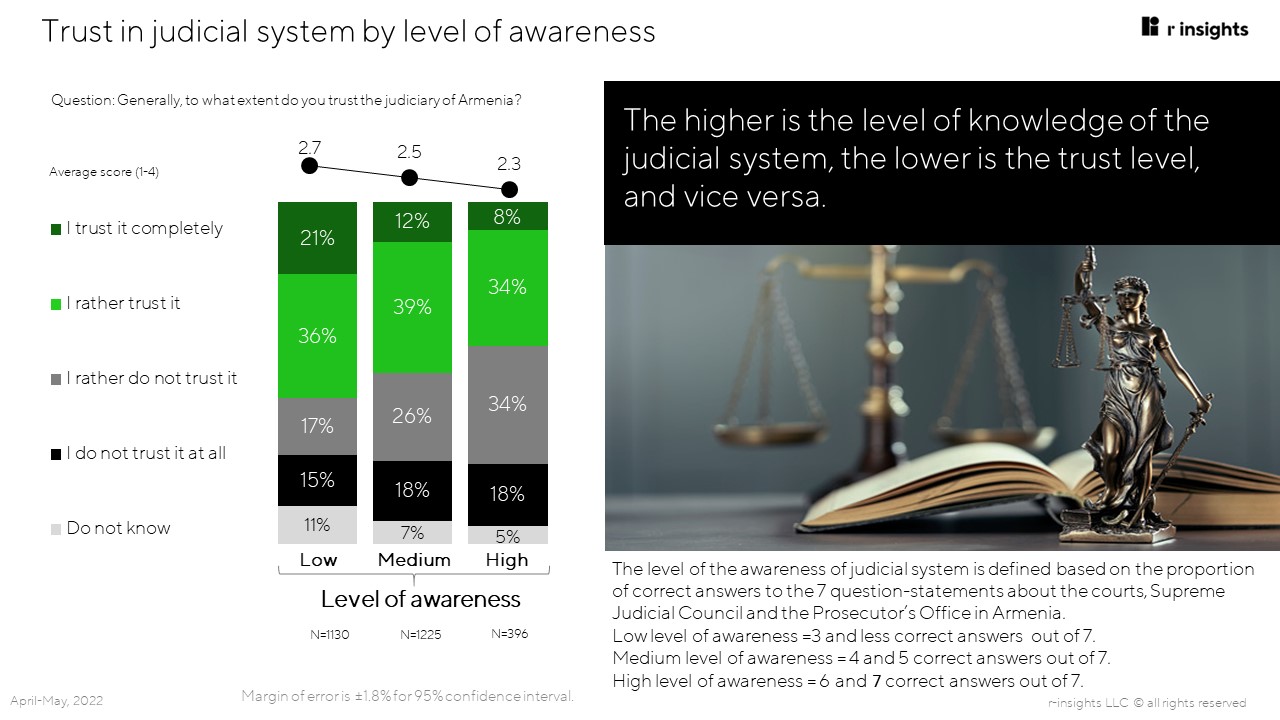
When assessing various aspects of the judicial system, the overwhelming majority of the respondents agree that:
• officials can force judges to change their decision (62%)
• people do not apply to courts because they have no hope to find justice there (61%)
• In Armenia the one who is more financially secure wins the trial (60%)
• In Armenia the Government can influence the court (59%).
At the same time, the major part of the respondents also believes that:
• Information about the judicial system in Armenia is clear and comprehensible (55%)
• In Armenia court decisions are usually well-founded (52%)
• Human rights are always protected in the courts of Armenia (51%)
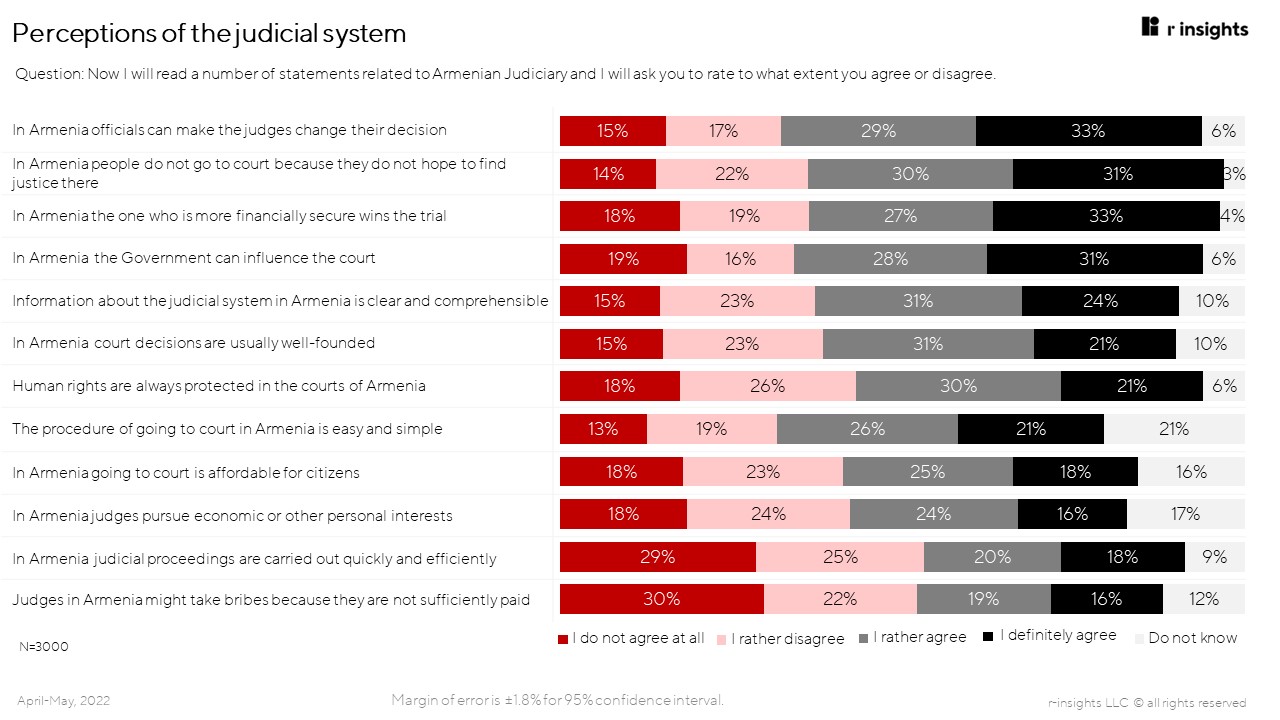
The judges in Armenia are mostly perceived to be polite (74%) and professional (70%). 49% of the respondents agreed that the judges are fair/impartial, while 48% also believes that the judges are not independent of political powers, the economic system and the public opinion.
Equal number of respondents (44%) find that in Armenia judges are mostly corrupt and non-corrupt.
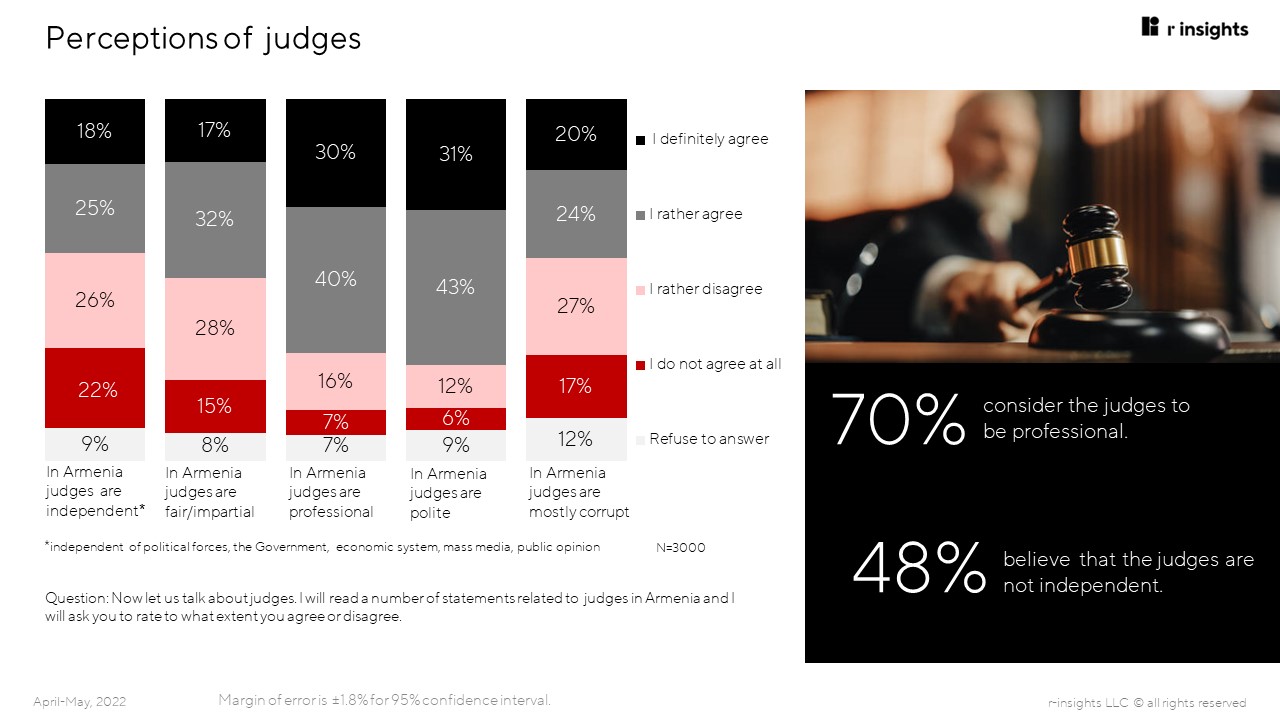
The Prosecution in Armenia is perceived to be operating quickly and efficiently by almost the half of the respondents (51%), and 11% of the respondent found it difficult to express opinion on efficiency of the Prosecutor’s Office work. The half of the respondents also think of the prosecutors as fair and impartial. Meanwhile, 54% of the respondents have impression that in Armenia officials can make the Prosecution change its opinion.
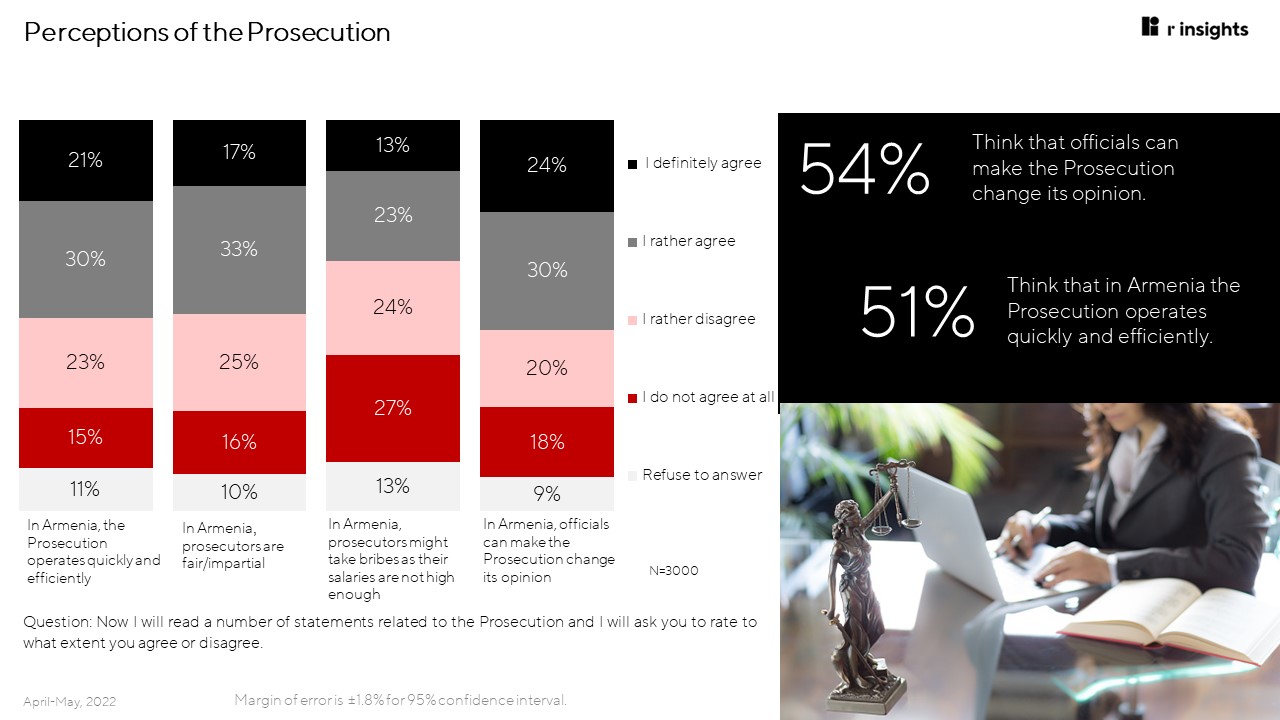
The majority of respondents, 80%, know that the Armenian judicial bodies must be independent from the Government. Most respondents also know that judges in Armenia cannot be members of a political party (74%), as well as that the Supreme Judicial Council guarantees the independence of judges (73%).
56% of the respondents are aware that judiciary has as much power as the legislative and executive branches, that is, they are informed about the basic principle of separation of powers.
Less than half of the respondents, 40%, know the procedure for appointing judges in Armenia.
The majority of respondents does not have a clear understanding of functions of the Armenian judicial system, as 71% think that the judicial system develops laws. The knowledge level is low also regarding the connection between Prosecution and courts, as 73% of the respondents find that courts are inferior to Prosecution.


In 2019-2020 R-Insights Research Company implemented Social & Behavioral Change Communications (SBCC) formative research project commissioned by the United Nations World Food Programme (WFP)..

In 2019 R-Insights Research Company, in the scope of a contract with the Organisation for Economic Co-operation and Development (OECD), implemented a research project which aimed at evaluating the effectiveness of financial education seminars